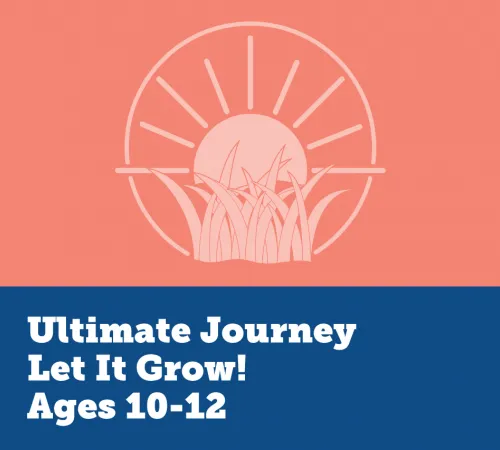Why Environmental EducationToday’s youth will be the problem-solvers and decision-makers of tomorrow. It is critical that we give them the knowledge and skills they need to tackle a growing number of serious environmental issues.
High-quality environmental education provides the knowledge and skills needed to address tough environmental issues. It’s a process that allows individuals to explore issues, engage in problem-solving and take action to improve the environment. High-quality environmental education should not advocate a particular viewpoint or course of action. Rather, it should teach individuals how to weigh various sides of an issue through critical thinking, and it should enhance problem-solving and decision-making skills. 1
The Ultimate Journey program has a strong environmental education component that is based on these principles. It encourages critical thinking, problem solving and decision making. It helps youth learn basic environmental and science concepts, which they can apply when approaching an environmental issue or figuring out ways they can help the environment. |
Ultimate Journey and the Club ExperienceWe know that a high-quality Club Experience, including supportive relationships with caring adult professionals, connects youth to the Club and helps ensure that members participate frequently and stay engaged. Every day, Club professionals are challenged with creating and sustaining a safe and supportive Club climate where youth can learn and thrive. So, just how do Club professionals use our youth development principles to bring a high-quality Club Experience to life? They do so with important practices in these areas: - Establishing caring relationships
- Setting high expectations
- Positive behavior management
- Teamwork/collective staff efficiency
- Building a supportive Club climate
- Planning activities and programs
- Youth input and agency
- Family engagement
- Effective Club-school partnerships
- Cultural sensitivity
Environmental education provides fun opportunities for young people to get active outdoors and to reinforce key academic concepts and skills. When Club staff integrate proven staff practices, Ultimate Journey becomes a powerful part of an overall Club Experience that helps young people achieve more in all outcome areas. |
Academic SuccessUltimate Journey falls under the Academic Success outcome area. Education programs complement and reinforce what youth learn during the school day, while creating experiences that invite them to fall in love with learning. Rooted in social-emotional development practices, programs in this area enable all youth to be effective, engaged learners who are on track to graduate with a plan for the future. As an informal learning space, Clubs and Youth Centers have an opportunity to offer both remediation and enrichment, all while inviting youth to discover and pursue passions that connect to future opportunities. Education programs include experiential learning, so that youth learn actively, through a “hands-on” and “minds-on” approach. At all developmental stages, Education programs will prompt youth to plan and prepare for the future. This includes observing and practicing the social-emotional “soft skills,” exploring career options, and engaging in programmatic experiences that prepare them to learn and work beyond high school. Programs and experiences supporting employability encourage youth to explore career options and the postsecondary pathways to their chosen career, develop skills necessary for success in postsecondary education and the workforce, and apply their skills through real world experiences. Youth Development Professional's Role in Academic Success Positive youth development is an intentional, prosocial approach that engages youth within their communities, schools, organizations, peer groups, and families in a manner that is productive and constructive; recognizes, utilizes and enhances young people’s strengths; and promotes positive outcomes for young people by providing opportunities, fostering positive relationships, and furnishing the support needed to build on their leadership strengths. vi Youth development practices that support teaching and learning are essential for quality Education programs. Education programs, when facilitated with high-quality youth development practices, will help youth develop the attitudes, behaviors and skills needed to become effective, engaged learners who are on track to graduate with a plan for the future. - Youth development professionals help youth become more effective and engaged learners when they:
- Model curiosity and encourage youth to ask questions.
- Aim for co-inquiry as a “guide on the side,” not a “sage on the stage.”
- Engineer for success and allow for mistakes: While staff provide the supports necessary for youth to successfully complete projects and activities, they also include enough challenge so that youth have the opportunity to learn from mistakes.
- Help youth connect new learning to previous experiences.
- Ask questions to check for understanding and prompt youth to think about their thinking.
- Teach learning strategies in addition to content; so that while youth learn new things, they also discover how to learn more effectively.
- Attend to learner diversity with multiple options for engagement, representation and expression.
- Youth development professionals help youth stay on track to graduate with a plan for the future when they:
- Give youth a voice in Education program activities and establish multiple opportunities for youth to make choices, have input, or share leadership roles in the Club’s programs and activities.
- Engage community partners to serve as mentors and volunteers to enhance programming.
- Model positive workplace behaviors and incorporate opportunities for youth to practice them in the Club or Youth Center.
- Help youth connect experiences and interests to future career opportunities.
|


